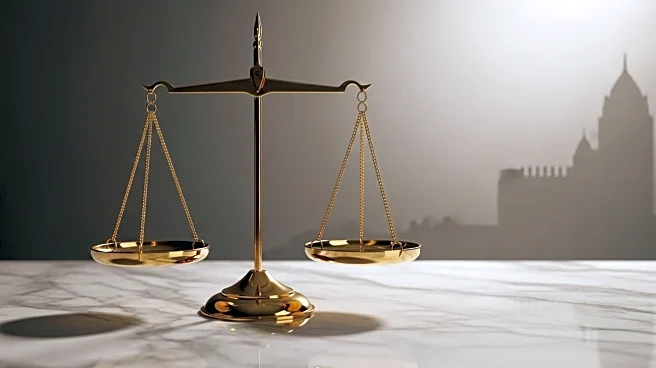What is the story about?
What's Happening?
Russia is facing significant economic challenges, with stalled growth, declining energy revenues, and a growing budget deficit. The government plans to raise value-added tax and cut nondefense spending to address these issues. The budget deficit has reached 4.2 trillion rubles, and further increases are expected. The economic pressures are largely due to the war in Ukraine, falling oil prices, and Western sanctions. The Kremlin is considering tax hikes and spending cuts to manage the deficit, with a focus on maintaining high military spending.
Why It's Important?
The economic difficulties facing Russia could have significant implications for its domestic stability and foreign policy. The budget cuts and tax increases may affect social spending and public services, leading to potential unrest. The economic pressure may also influence Russia's approach to the conflict in Ukraine and its willingness to negotiate a peace deal. The situation highlights the impact of sanctions and the importance of energy revenues for Russia's economy.
What's Next?
The Russian government is expected to submit a draft budget for 2026, with potential changes to address the economic challenges. The Kremlin may face increased pressure to negotiate a peace deal in Ukraine due to the economic strain. The international community may consider strengthening sanctions to further pressure Russia economically.
Beyond the Headlines
The economic challenges in Russia highlight the broader geopolitical implications of the conflict in Ukraine and the effectiveness of sanctions. The situation may lead to shifts in Russia's domestic policies and its approach to international relations. The economic strain could also impact Russia's long-term strategic goals and its ability to maintain military spending.
















